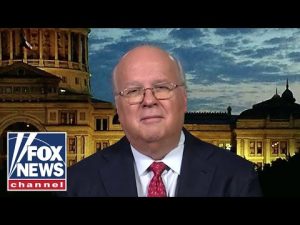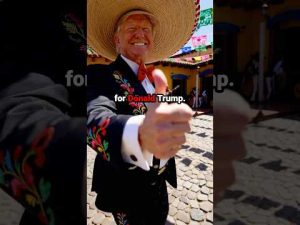In recent news, Chevron finds itself in a tango with the Trump administration over its license to continue operations in Venezuela. It seems that a big player in the oil game is eager to dig into Venezuela’s vast reserves, but President Trump is playing hardball. All this hullabaloo kicked off earlier in the year when Trump, in a decisive move, revoked a key license for exporting oil, pointing fingers at the Venezuelan dictator for a lack of cooperation in dealing with violent migrants. One can’t help but notice how the Trump administration is firm on treating Venezuela as the pariah it has become under its leadership.
Maria Corina Machado, a leading figure in the Venezuelan opposition, applauds Trump’s move and stands firm in her belief that the strategy is not only correct but already effective. To her, Maduro isn’t just a regular dictator; he’s the boss of a mega-crime syndicate that has turned Venezuela into a criminal paradise. There’s no mistaking the fact he’s using the nation’s resources, and the money from illicit activities, to fuel drug trafficking and force Venezuelans to flee their homes. This master plan not only threatens Venezuela’s neighbors but is a real headache for the Western Hemisphere, gaining the unwelcome attention of Iran, Russia, and other unsavory international players.
Chevron’s top dog, Mike Wirth, thinks they can sweet talk their way into continuing business in Venezuela. Maria finds this idea as foolish as it sounds, heavily criticizing the oil giant’s attempts to gain leverage. According to her, Maduro’s regime is just throwing out scraps, all while presiding over one of the richest oil reserves in the world. She remains confident that with a democratic government in place, Venezuela could kick out the cartels and climb out of the gutter it’s wallowing in right now.
This situation is not just about oil rights; it’s a geopolitical chess game. Rep. Jimenez, another strong voice in this narrative, calls on the Trump administration to tighten the vice on countries like Cuba that are teetering on the edge. It’s a critical hour stamp in history because never before has the Western Hemisphere been so close to ditching communism and dictatorship altogether. Should the Maduro regime collapse, Maria is convinced that Cuba and Nicaragua would follow suit like a set of dominoes, painting a hopeful picture of a future free of notorious regimes.
Maria dreams of a Venezuela that not only regains its freedom but becomes a boon for America’s national security interests and economic opportunities. She sees a future brimming with promise, fueled not just by oil and gas but by every possible sector. There’s a fresh whiff of potential for over an astounding trillion dollars’ worth of opportunities. In this high-stakes game, timing is everything, and with Maduro weaker than ever, the opposition is committed to seeing this political nightmare through to the end. The idea of Venezuela morphing from adversary to ally isn’t just a pipe dream anymore; it’s a vision Maria believes is within grasp, as long as everyone keeps their eyes on the prize.







